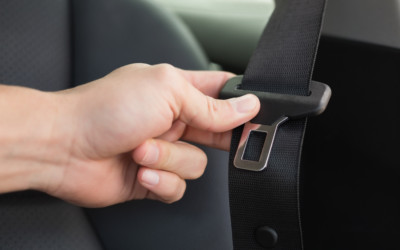What if I’m Injured by an Uninsured Driver?

In Nova Scotia, every car insurance policy protects people from the consequences of a negligent unidentified or uninsured driver. This compensation comes from section D of your insurance policy. If you pay car insurance premiums, you have section D protection.
This means that if you are injured in a hit-and-run accident, and you are covered by insurance. Though you that negligent driver may not have had insurance to compensate for the consequences of the accident, your section D policy will step in.
The same is true if a rusted car part lying on a highway causes an accident. Though you may never know the identity of the car driver who negligently kept the car in such a state of disrepair, you will be covered by section D of your insurance policy.
Section of your car insurance policy provides that your insurance company is required to pay all sums of compensation for an injury resulting from an accident involving a car that you would otherwise have been able to recover from the driver of the uninsured or unidentified vehicle.
Victims of the negligence of uninsured or unidentified drivers are often surprised that it’s their insurance company that is required to compensate them. I often hear concerns about possible impacts on insurance premiums but rest assured, if the accident is not your fault, your premiums should not increase because you seek injury compensation under Section D of your policy.
There are some things that are important to know about a Section D claim however. Your insurance company is permitted (and likely will!) to legally contest your entitlement to compensation. Generally this means that the Section D insurance company will:
- Require you to prove that the uninsured or unidentied driver was likely negligent (on a balance of probabilities);
- Require you to meet your burden to prove that the negligence of the uninsured or unidentified driver likely caused your injuries;
- Insist that you comply with the strict timelines required under Section D of your policy.
It is very important to know that Section D of every car insurance policy requires you to give the following notice to certain people. It states that anyone injured in a car accident involving an unidentified car, that injury victim must do the following:
- Within 24 hours after the accident (or as soon as reasonable), report the accident to the police.
- Within 30 days of the accident, notify the section D insurance company of the accident and all known facts.
Generally speaking, these notice requirements are considered to be a condition precedent to recover compensation under section D of a policy. That means, that there is ground for forfeiting the claim if notice isn’t provided in the above timelines. Insurance companies will ask for quick notice so that they may make efforts to investigate to try to identify the unidentified driver. It makes financial sense for them to do this; if they find out who the driver was, and that driver is insured, then that other insurance company will have to compensate for the injuries. If notice is provided too late, then insurance companies say that their ability to do a proper investigation is compromised.
Fortunately, in Nova Scotia failure to meet the section D deadlines isn’t fatal to your ability to seek compensation. Even if you miss the notice timelines required for a section D claim, Nova Scotia’s Insurance Act allows for a judge to use its discretion to relieve an injury victim from the potentially harsh consequences of these strict timelines. The Insurance Act will not allow an insurance company to dismiss a claim on timelines alone is doing so would result in an inequitable or unfair result.
Unless you are found to have shown a “careless disregard” for the rights of the insurance company so as to cause actual prejudice to their position, an injury victim should usually be able to get around the timelines.
But this isn’t guaranteed. It is a good idea not to push your luck. If you were injured in a car accident caused by an uninsured or unidentified driver, it is wise to provide notice to the police and your insurance company as soon as possible.






















